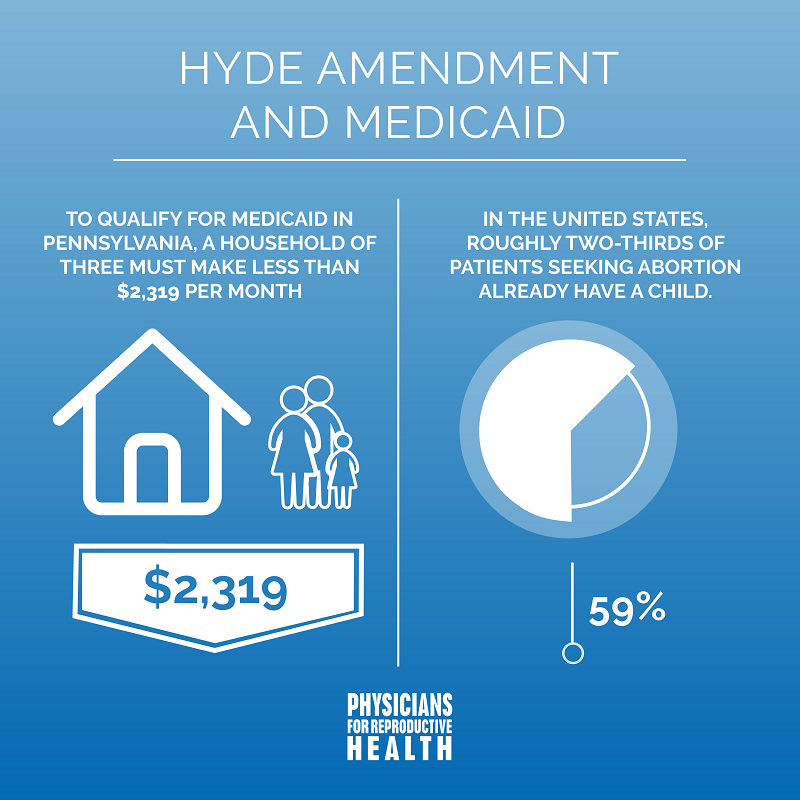With Liberty and Justice for Some: Medicaid Recipients and the Hyde Amendment
Health insurance should not be based on which state you live in.

This is the first part of a five-part series, published in partnership with Physicians for Reproductive Health, exploring how the Hyde Amendment negatively affects different populations in the United States.
As a family doctor working in an underserved community, I treat common medical problems like diabetes and provide preventive health-care services such as Pap tests. I also provide abortions.
At the start of my practice in New York state, it was easy to make available comprehensive health care to all of my patients regardless of their income. This was because New York chose to permit state Medicaid funds to cover abortion care, which is not the case for federal Medicaid dollars under the Hyde Amendment.
When my New York patients using Medicaid as their health-care coverage came to see me and decided that abortion was the best decision, I was able to provide the care they needed without my patients worrying about the cost.
When I moved to Pennsylvania, my interactions with patients seeking an abortion completely changed.
The very first patient I saw who decided on an abortion was reliant on Medicaid. Just as I was about to discuss her medical history as part of the exam, she asked how much the abortion would cost, since Pennsylvania doesn’t permit state funds to be used for abortion care.
In shock, I needed a minute to process before continuing because I was so used to state funds being used to cover all reproductive health-care services and not isolating abortion as if it wasn’t a common procedure. Indeed, one in three women of reproductive age will need an abortion in her lifetime.
Instead of providing my patient with the abortion she needed without delay, I had to help her figure out whether she could afford to receive care.
For 40 years, the Hyde Amendment has prohibited the use of federal funds to pay for abortion care except in the cases of life endangerment, rape, or incest. However, states can individually decide whether state funds can be used to cover abortion care for Medicaid recipients. Currently, more than half of the 50 U.S. states prohibit state funding of abortion beyond the Hyde exceptions.

To qualify for Medicaid benefits in Pennsylvania, a household of three must make less than $2,319 per month. Patients who qualify for Medicaid but who are unable to receive abortion coverage often have to concern themselves with taking an unpaid day off from work—because many of them work jobs that don’t offer paid leave—and finding and affording extra child care. Roughly two-thirds of patients seeking abortion already have a child.
The funding restriction means that patients are forced to delay care in order to find the money needed to get a service that is covered financially by Medicaid just one state over.
It’s time to end Hyde. Forty years of denying women access to the care they need when they need it is too long. Health insurance should not be based on which state you live in. The timetable for health care should not depend on whether you have Medicaid or whether you are fortunate enough to have private insurance.
No longer should my patients reliant on Medicaid be forced into the vulnerable position of scraping together funds for their abortion care.
No longer should they have to decide which personal items to pawn or which bills to put off paying that month.
No longer should they have to decide which family members and friends they can disclose their personal health decisions to in order to borrow money.
As a doctor, I want to focus on helping patients with their medical decisions, not on whether or not they can afford the health care they need.
